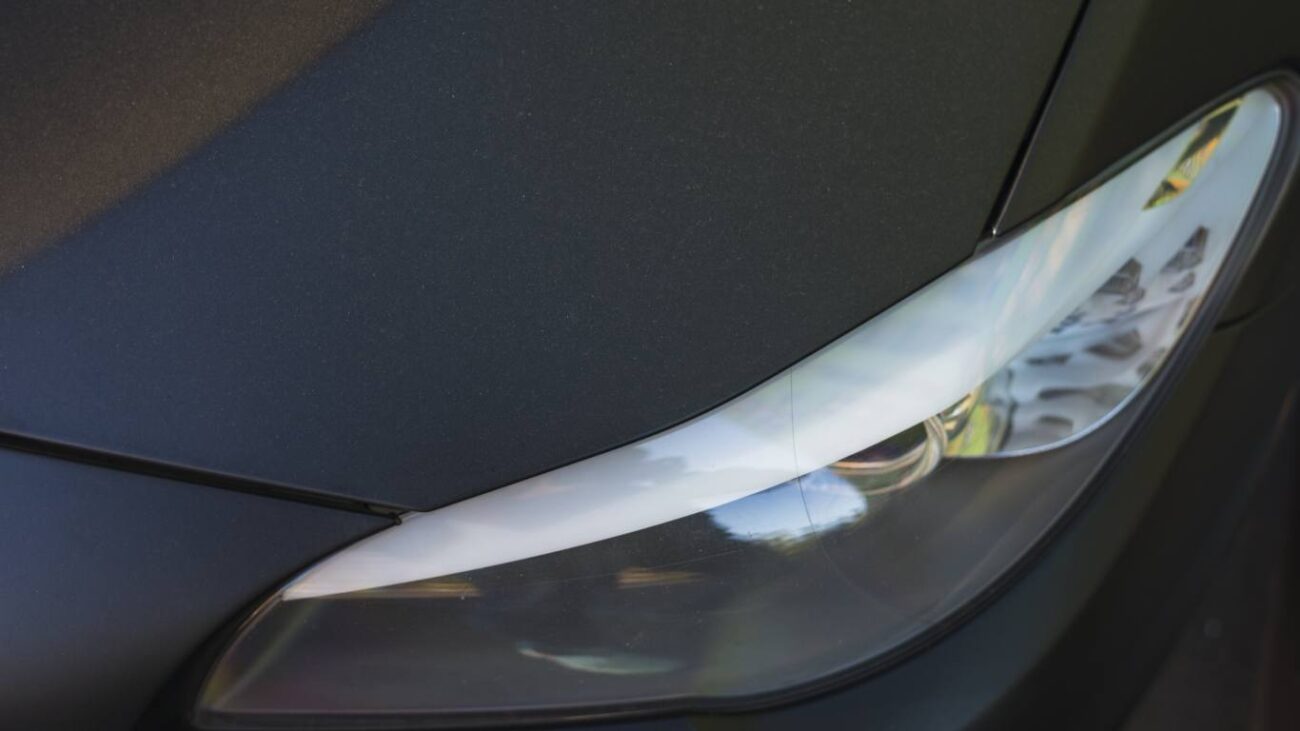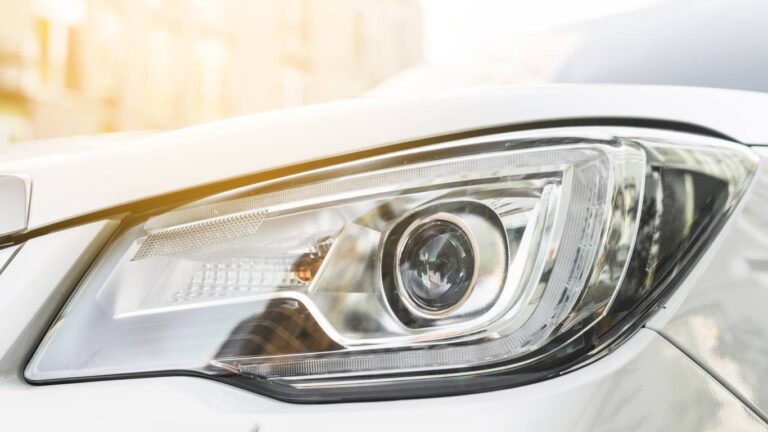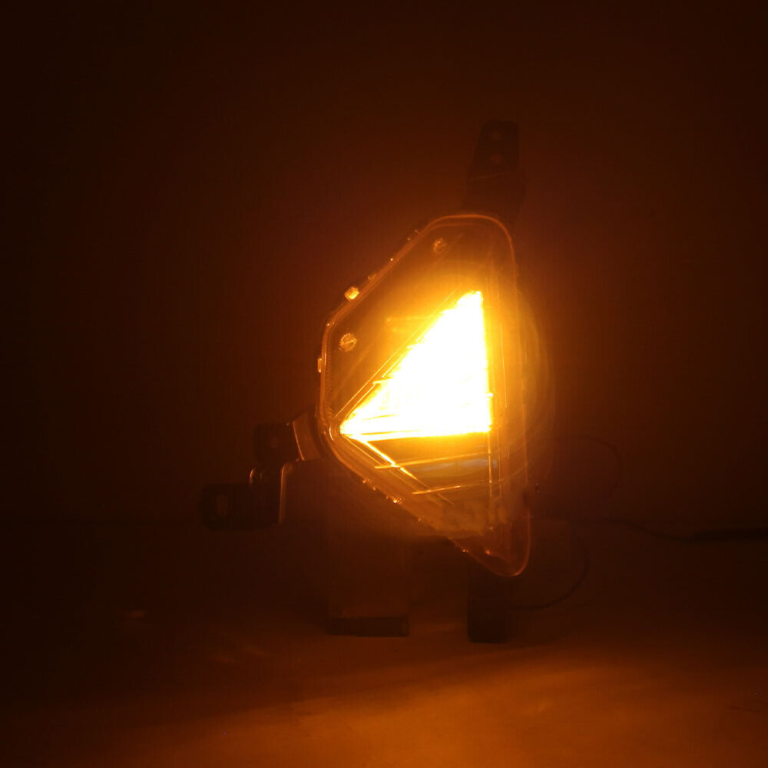LED car headlights are indeed becoming increasingly popular due to their advantages. They are not only more energy-efficient than halogen headlights but also use significantly less power, which translates to better fuel economy. Additionally, their long lifespan, thanks to the lack of filaments that can burn out, and their superior resistance to shock and vibrations compared to traditional bulbs, make them ideal for the bumps and jostles of driving.
This guide delves into the world of LED headlights, exploring their numerous advantages and providing crucial information for drivers considering the upgrade.
The Rise of LED Car Headlights in Modern Automotive Lighting
Contemporary cars increasingly utilize LEDs, particularly in daytime running lights. This makes perfect sense, as LEDs offer both extended life and superior brightness – ideal qualities for lamps that remain constantly illuminated. Additionally, LEDs are employed in the distinctive “traveling” turn signals found on many Volkswagen and Audi models.
Traditionally, car headlamps relied on high-intensity discharge (xenon) or halogen bulbs. These come with drawbacks such as filaments burning out, generating heat, and consuming significant energy. LED offer a solution. They boast superior energy efficiency and lifespan, putting less stress on a car’s electrical systems. While not quite as bright as HID lights, LEDs provide more natural light color and surpass halogen bulbs in brightness
Compatibility Concerns: Things to Consider Before Upgrading to automotive LED Headlight Bulbs
While the higher upfront cost of LED bulbs is offset by their longer lifespan, there are some considerations before swapping them into existing vehicles. Cars are designed for specific bulb types, and replacing them with LEDs could cause problems. For example, a car with halogen headlights that are type-approved for MOT testing might fail if automotive LED headlights are installed.
LED lighting was formerly exclusive to high-end cars costing six figures. Unlike traditional halogen bulbs, LED car headlights require a special cooling system to keep the powerful LED from getting too hot and melting. This occurs because, instead of the lightbulb, the electrical base of LED devices lights up and becomes heated. The cost of manufacturing is increased by the cooling component.
Additionally, modern cars often use CANBUS wiring systems, which reduce wiring complexity by sending coded signals. These systems can have compatibility issues with aftermarket LED, potentially leading to electrical problems.
If your car originally came with LED, you shouldn’t face any issues. However, be cautious when replacing halogen or xenon bulbs with LED headlights in older vehicles. Consulting a qualified mechanic is recommended to ensure compatibility and avoid potential problems.
Why LED Headlights Are The Best?

Three main contenders rule the road when it comes to car headlights: LED, HID, and halogen. But why automotive LED headlight is more popular in older vehicles? So, let’s dive in!
Halogen Vs. LED Headlight
While halogen headlights reign supreme in terms of prevalence, they fall short in efficiency. Most of the energy they consume is wasted as heat, not converted to light. This translates to a short lifespan of around 1,000 hours, requiring frequent replacements despite their low initial cost. In stark contrast, LED car headlights boast a staggering lifespan of 15,000 hours. Though they come with a higher price tag than halogen car headlamp bulb, the extended lifespan makes them the more cost-effective option in the long run.
HID Vs. LED Vehicle Bulbs
While halogen headlights lack the brilliance of LED or HID options, HID lights themselves have drawbacks. Their intense white light can create a blinding effect, casting everything else in shadow. This makes it difficult to see pedestrians or objects in low-light situations like parking lots. Additionally, the blue-white cast of HID lights reflects in fog, creating temporary blindness for the driver. Furthermore, their brightness can reach oncoming vehicles from over a mile away, potentially causing safety hazards.
Fortunately, LED headlights offer a solution. They deliver near-HID levels of brightness without compromising visibility for others or yourself. You can enjoy excellent illumination without sacrificing safety or awareness.
Find Your Perfect LED Car Headlights at Shayan Auto Parts.
Proper headlight adjustment is crucial, but what if you could see even better at night? Upgrading your halogen bulbs to LED car headlights dramatically improves visibility, keeping you safer on the road. Plus, LEDs boast a much longer lifespan than traditional halogens, saving you money in the long run.
Shayan Auto Parts is your one-stop shop for LED headlights:
- Massive Selection: Find the perfect LED for your car, with guaranteed compatibility.
- Competitive Prices: Get the best deals on top-quality LED headlights for cars.
- Expert Guidance: Our knowledgeable staff can answer any questions and help you choose the right LED for your needs.
- Fast and Easy Ordering: Shop online or visit our store for a hassle-free experience.
Upgrade your headlights today and experience the difference with Shayan Auto Parts!
FAQ | LED Car Headlights
Is it legal to put LED headlights in Canada?
In Canada, you can upgrade to LED headlights for cars, but make sure they’re DOT/SAE certified and fit your car’s original housing or a proper LED replacement. “Universal fit” options might cause glare and be illegal.
Is it worth to upgrade LED car headlights?
Upgrading headlights to LED is a great choice due to their stronger light quality, long lifespan, and lower energy use. As adoption rates increase, replacement costs are likely to decrease as well.



